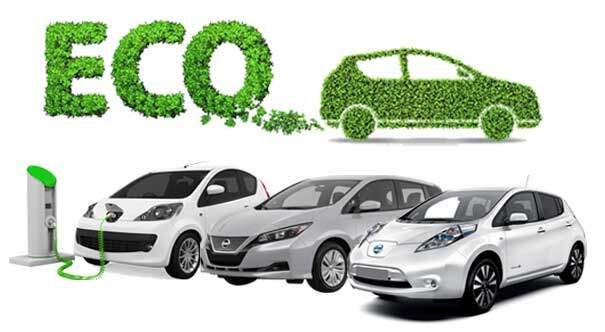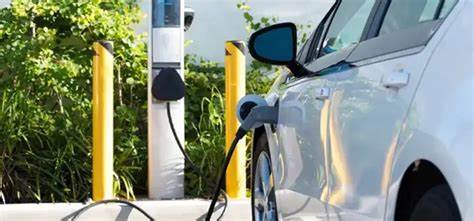
Importance and Relevance of Debunking Eco Vehicle Ownership Myths
Introduction
The evolution of eco vehicle ownership and its impact on the environment have made it crucial to debunk the common myths surrounding this topic. As more people become aware of the need to reduce carbon emissions and protect the planet, understanding the truth about eco-friendly vehicles is essential. In this article, we will explore the key concepts and definitions related to eco vehicle ownership, debunk common myths, provide case studies and examples, discuss current trends and developments, address challenges and controversies, speculate on the future outlook, and conclude with a summary of the main points.
Historical Background
Since the introduction of eco-friendly vehicles, there has been a significant shift in the automotive industry’s focus towards sustainability. The negative impact of traditional vehicles on the environment, such as greenhouse gas emissions and air pollution, prompted the development of eco vehicles. These vehicles aim to reduce carbon emissions and promote cleaner transportation alternatives. However, along with the rise of eco vehicles came the emergence of various myths surrounding their ownership.
Key Concepts and Definitions
Eco vehicle ownership refers to the practice of owning and using vehicles that are designed to minimize their impact on the environment. These vehicles can include electric vehicles, hybrids, hydrogen fuel cell vehicles, and other eco-friendly options. It is essential to debunk the myths associated with eco vehicle ownership to provide a clear understanding of their benefits and capabilities.

Debunking Common Myths
Myth: Electric vehicles are not truly eco-friendly
One common myth surrounding eco vehicle ownership is that electric vehicles are not genuinely eco-friendly. However, this misconception overlooks the fact that electric vehicles produce zero tailpipe emissions. While it is true that the production of electricity may contribute to carbon emissions, the overall carbon footprint of electric vehicles is significantly lower than that of conventional vehicles. Additionally, advancements in renewable energy sources are further reducing the carbon impact of charging electric vehicles.
Myth: Hybrids are the only eco-friendly option
Another prevalent myth suggests that hybrids are the only eco-friendly option available. While hybrids do offer improved fuel efficiency and reduced emissions compared to conventional vehicles, they are not the only choice for eco-conscious individuals. Electric vehicles and hydrogen fuel cell vehicles are also viable alternatives. Each option has its own advantages and environmental impact, making it crucial to consider all possibilities before making a decision.
Myth: Eco vehicles are not suitable for long distances
Many people believe that eco vehicles, particularly electric vehicles, are not suitable for long-distance travel due to limited range and charging infrastructure. However, this myth is no longer accurate. With advancements in battery technology, electric vehicles can now travel longer distances on a single charge. Moreover, the development of a comprehensive charging network has made long-distance travel in electric vehicles more accessible and convenient.
Myth: Maintenance and repair costs are higher for eco vehicles
There is a common misconception that eco vehicles, such as electric vehicles, have higher maintenance and repair costs compared to conventional vehicles. However, this myth fails to consider the simplified mechanics of eco vehicles, resulting in fewer moving parts and less frequent maintenance requirements. Additionally, the lower reliance on fossil fuels can lead to significant cost savings over the lifetime of an eco vehicle.

Case Studies or Examples
To illustrate the successful integration of eco vehicles into various transportation systems, a case study can be examined. In one city, electric vehicle fleets have been implemented as part of the public transportation system, resulting in reduced emissions and improved air quality. This case study demonstrates the feasibility and benefits of incorporating eco vehicles on a larger scale.
Another example involves an individual’s experience of owning an eco vehicle and debunking common myths. By sharing personal insights and firsthand knowledge, this example highlights the practicality and advantages of eco vehicle ownership.
Current Trends or Developments
Recent research findings continue to shed light on the environmental impact of eco vehicles. Studies have shown that eco vehicles significantly reduce carbon emissions and contribute to a cleaner and healthier environment. Additionally, advancements in eco vehicle technology and infrastructure are continuously being made, further enhancing the viability and accessibility of eco vehicle ownership.

Challenges or Controversies
Addressing concerns about the sourcing and disposal of battery materials in electric vehicles is a challenge that the industry is actively working on. Ensuring responsible and sustainable practices throughout the lifecycle of eco vehicles is crucial for minimizing their overall environmental impact. Additionally, there is an ongoing debate regarding the overall lifecycle impact of eco vehicles compared to conventional vehicles. Understanding the various factors involved and considering different perspectives is essential in forming an informed opinion.
Future Outlook
The growth and adoption of eco vehicles are expected to continue in the coming years. As governments and organizations prioritize sustainable transportation solutions, eco vehicles will play a significant role in reducing carbon emissions and promoting environmental stewardship. Potential advancements in technology and supportive policies are anticipated, further driving the popularity and accessibility of eco vehicle ownership.
Conclusion
In conclusion, debunking eco vehicle ownership myths is essential for promoting a better understanding of the benefits and capabilities of these vehicles. Electric vehicles are genuinely eco-friendly, with a lower carbon footprint compared to conventional vehicles. Hybrids are not the only eco-friendly option, as electric vehicles and hydrogen fuel cell vehicles also provide viable alternatives. Eco vehicles are suitable for long distances, thanks to advancements in range and charging infrastructure. Maintenance and repair costs are not higher for eco vehicles, as they often require less frequent maintenance and enjoy cost savings from reduced fossil fuel consumption. By debunking these myths and addressing concerns, we can encourage more individuals to embrace eco vehicle ownership and contribute to a sustainable future.




